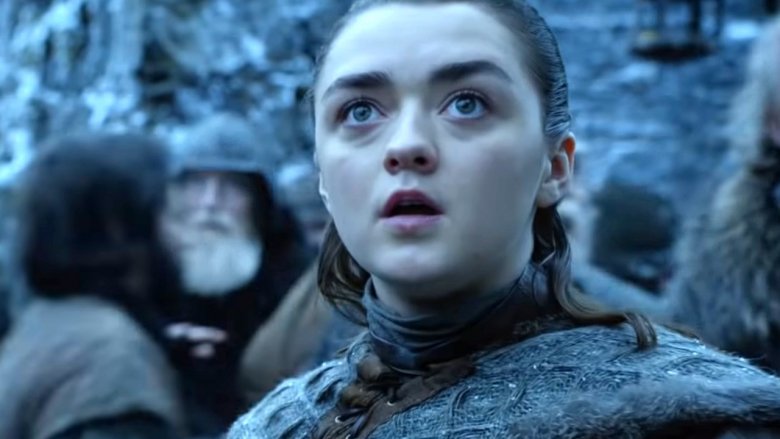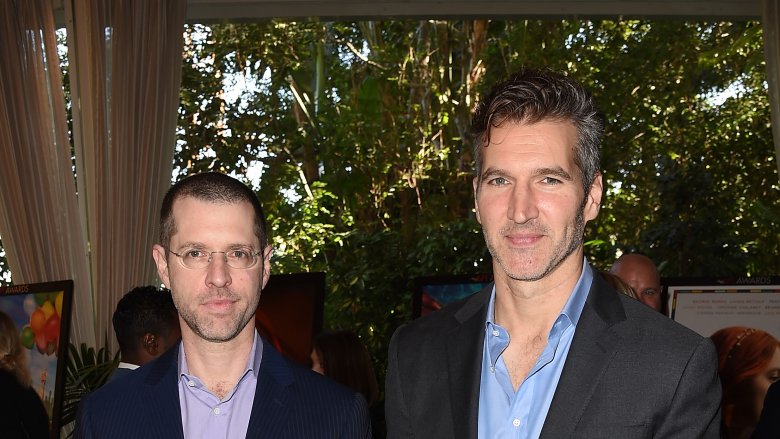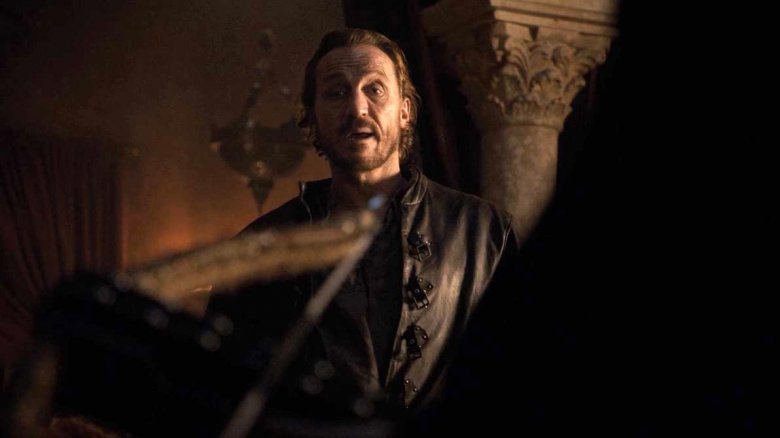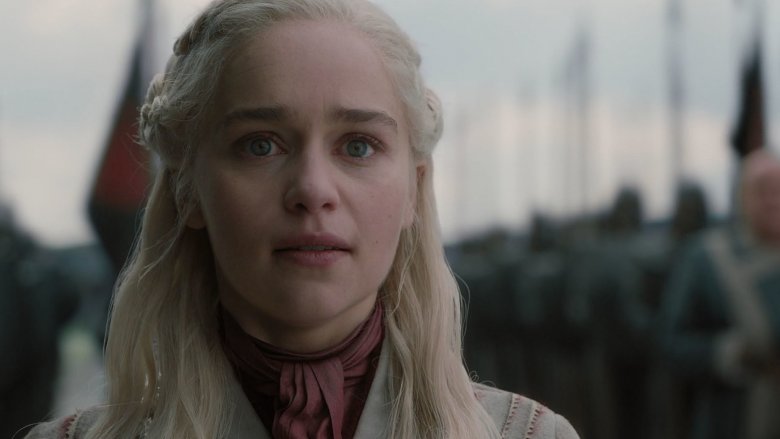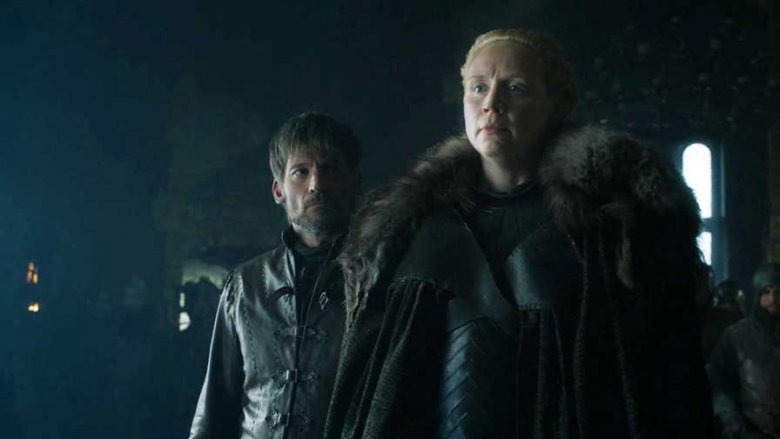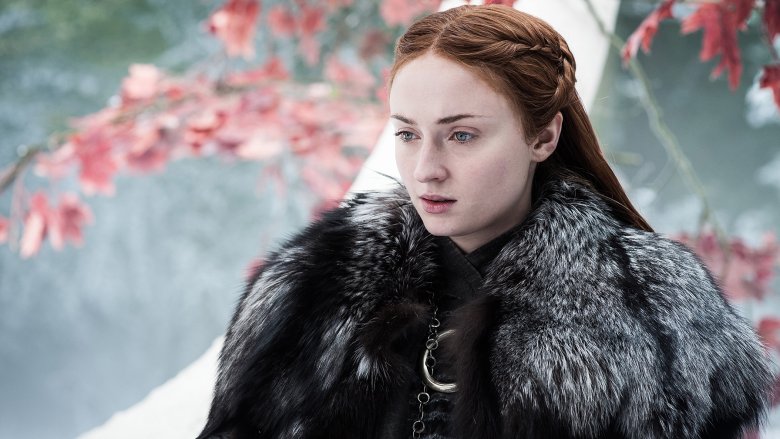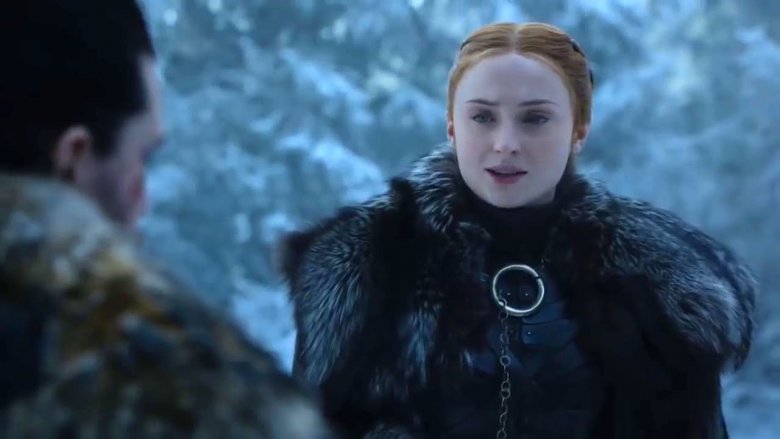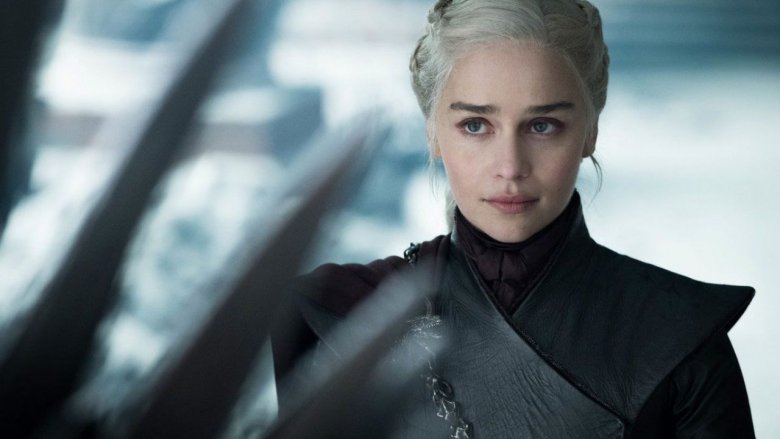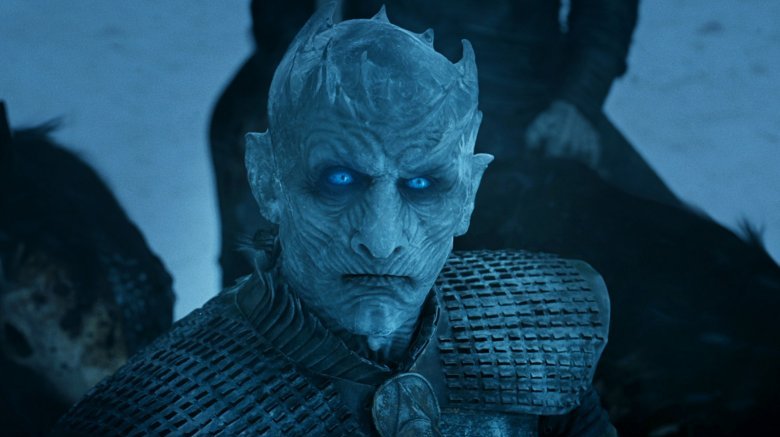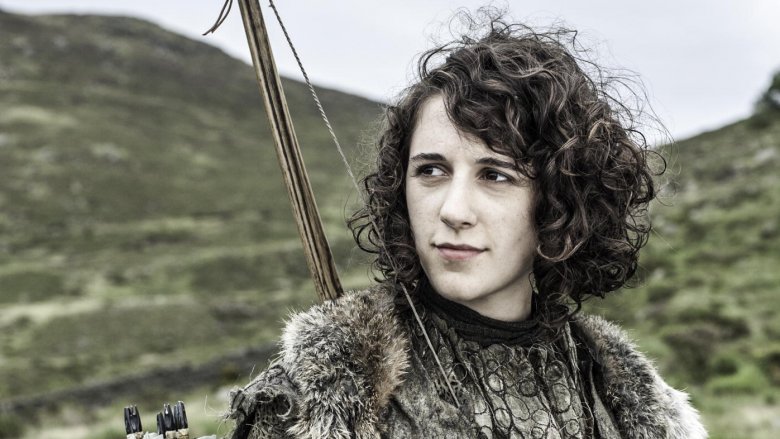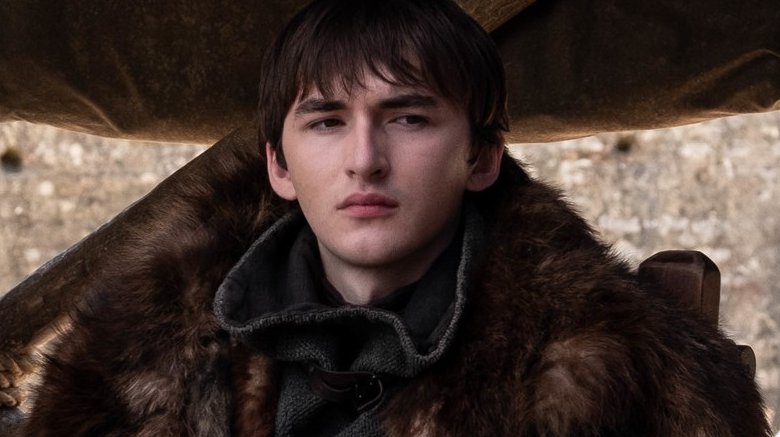What Went Wrong With Game Of Thrones
Game of Thrones finished its eight-year run on May 19, 2019, and expectations were high — not just for the series finale, but for the eighth season as a whole. After years of battles, romance, political intrigue, sweeping set pieces, dragons, wolves, and ice zombies (as well as some of the best performances on television), fans around the world were anxious to see how the series could possibly end and what showrunners David Benioff & D.B. Weiss had come up with.
In the end, the eighth season of Game of Thrones ended up with a pretty disappointing Rotten Tomatoes score as well as awful word of mouth among fans, some of whom started a full-on petition to rewrite the season without "incompetent writers." With so much buildup and anticipation, it was never going to please everyone or tie everything on this massive show up perfectly, but thanks to rushed execution, frustrating character choices, and other inconsistencies, a number of diehard Thrones fans are unhappy — so here's exactly what went wrong with Game of Thrones in the end.
No more source material
For the first five seasons, Benioff and Weiss were able to mostly follow Martin's books as a direct template, and many of the show's most beloved and infamous moments, including the execution of Ned Stark, the Red and Purple Weddings, and Tyrion's trials by combat, were directly out of the source material. Benioff and Weiss did make some welcome adjustments — in the fifth book, Tyrion wanders around for what feels like years before not meeting Daenerys, whereas in the show, they team up pretty quickly — but on the whole, they stuck to the literal script in front of them.
However, once the show's fifth season ended, so did the source material — the next book in Martin's series, The Winds of Winter, is still unfinished (and one of the longest-running jokes in publishing, since it's been in progress for years). Even with that said, once Benioff and Weiss ran out of source material, they seemed unable to give fans a satisfying conclusion (even though Martin himself guided them through it), which Martin still might be able to fix if he ever releases the final books in the series. Benioff and Weiss aren't without talent, but Martin is naturally better at manipulating his own story.
Abbreviated seasons
It's understandable that, as Game of Thrones went on and became a bigger and bigger hit (even with its unsteady finish, it's still one of the biggest phenomenons in television history), HBO would want it to continue as long as possible, but in 2015, Benioff and Weiss had a public dispute with the network over how long it would run, expressing a desire to close out the show after just seven seasons. Even though Martin himself said the show should be at least 13 seasons, the showrunners and HBO eventually forged a deal for an eight-season run that would abbreviate seasons seven and eight — the former would last for seven episodes, while season eight would only consist of six.
It's obvious to fans of the show now that cramming years worth of buildup and anticipation into a shorter set of episodes created its own set of problems, making it all the more baffling that the showrunners insisted on these short seasons. Without room to let the story breathe, the episodes felt rushed, but clearly, Benioff and Weiss were ready to move past this professional milestone (in fact, they've already moved on to other enormous projects in its aftermath).
Rushed stories
Thanks to those shorter seasons, the show's final batch of episodes arguably suffered, and a lot of that had to do with rushed storylines, which stand in stark (pun intended) contrast to the show's earlier seasons that focused on epic journeys, character development, and long throughlines. As the eighth season began with two slower episodes that harkened back to the show's past, viewers got excited, but then it started barreling towards its grand finale, letting narrative threads come up short in confusing ways. Characters jumped in and out of the story at breakneck speeds (Bronn being just one example), seemingly insurmountable obstacles were overcome in the blink of an eye (bye, Night King), and characters seemingly teleported across the map of Westeros when most of the early seasons of the show were literally about how long it took to get anywhere (how did Euron show up so fast?).
Fans didn't want Thrones to end at all, but they certainly didn't want it to feel like it was trying to get there as fast as possible — even some of the actors admitted that things happened "pretty quickly" in the final season. With so much to wrap up, it's ultimately disappointing that the showrunners let their characters and plots suffer on the road to the finish line.
Sloppy execution
The biggest and most unfortunate side effect of the rushed pace of Thrones' final season is that while some of the plots and developments were exciting and welcome, their execution left something to be desired. While there were plenty of issues to tackle, including Daenerys' battle strategies, Missandei's exit, Euron's temporarily impeccable aim, Cersei's maybe-real pregnancy, or how Bran became king after doing basically nothing for the entire season, the worst example is Daenerys' sudden pivot into madness.
After seasons of barbecuing her enemies and conquering lands beyond Westeros, fans were anxious to see if Daenerys — feminist icon, Mother of Memes, and even an inspiration to expectant parents — would follow in her father Aerys' footsteps and become the Mad Queen. In the end, it makes sense that she did (audiences have been tracking Daenerys' vengeful, unhinged impulses right from the beginning), the only buildup viewers got for Daenerys' full-on descent into insanity was her enraged disbelief after Missandei's death, and for a character who was always committed to justice, some felt it was unearned to let her torch thousands of innocents in King's Landing. Instead of letting Daenerys experience a complex and fascinating character arc as she becomes the father she feared, the show turned her into a trope, and arguably made a mockery of one of its best and most interesting characters.
Poor character development
Daenerys' quick heel turn to Mad Queen is certainly one of the most obvious examples of season eight's uneven character development, but she's not the only character to suffer during the final season; if you want to know where season eight went wrong with its characters, look no further than Jaime Lannister.
Jaime started Thrones off in a pretty bad spot (trying to kill a child because he caught you having sex with your twin sister is definitely frowned upon), but over the course of the show, he became a fan favorite, thanks to a redeeming character arc and utterly charming performance from Nikolaj Coster-Waldau. Most of Jaime's redemptive streak was thanks to his friendship and eventual tryst with Brienne of Tarth, who loved the man beneath the armor and helped him escape the clutches of his conniving, cruel twin sister. However, after seducing Brienne, Jaime deserts Winterfell (which he fought to save in the battle against the Army of the Dead) to return to his sister's side, telling Brienne he's "hateful" just like Cersei before running away. Some fans got their hopes up that he might be returning to King's Landing to kill his sister, but in the end, Jaime and Cersei reunited just to die in each other's arms. With this one move, Benioff and Weiss arguably undid years of character development, giving one of the show's biggest characters one of the least satisfying conclusions they could have chosen.
Treatment of women
Game of Thrones has had issues concerning its female characters from the very beginning, but after seasons of rape, assault, and brutality that the showrunners passed off as normal conflict, it seemed like the show had turned over a new leaf. Besides the anticipated final showdown between Daenerys and Cersei, two powerful queens on a mission, the show let characters like Sansa, Arya, and Brienne grow more powerful and wise as the show neared its conclusion.
However, after watching Brienne take down the Hound, Arya become a faceless assassin, and Sansa defeat every man who hurt her, their treatment in the final season felt especially wrong. Sansa might become Queen in the North by the series' end, but before that, she tells the Hound that being raped and brutalized made her the woman she is. Brienne, the first female knight of the Seven Kingdoms, spent a whole scene crying over a man. (Arya, thankfully, was pretty consistently fierce.) Daenerys and Cersei didn't fare any better, with the former going crazy at the ring of a bell and the latter doing nothing for an entire season before getting crushed by rocks, but one of the worst fates fell to Missandei, the show's only remaining woman of color, who ended up executed simply to serve Daenerys' throughline. Thrones was never going to be a perfect feminist statement, but it could have done better than this.
Not showing important moments
With only six episodes, it stands to reason that some scenes would end up cut for time, but with so much ground to cover from a narrative perspective, it feels wrong that some of the show's most crucial moments ended up happening offscreen, especially when it comes to some of its biggest secrets.
One of the series' most shocking revelations is that Jon Snow isn't actually Ned Stark's bastard at all, but the legitimate son of Ned's sister Lyanna and Daenerys' brother Rhaegar, giving him the best claim of anyone to the Iron Throne. Viewers have known this for years, but as the information began to make its way through Westeros (with Jon himself finding out in the season premiere), one of the biggest questions was how each character might react to the news. Despite warnings from Daenerys to not tell anyone, Jon knows he has to tell Sansa and Arya, his not-sisters, this huge news, and as he gathers the Stark family at Winterfell to tell them who he really is, the camera simply... cuts away. As if that wasn't bad enough, when Sansa shrewdly tells Tyrion the truth, the show does the same thing, depriving fans of not one, but two huge reactions to this revelation. Depriving fans of these big moments undercut the dramatic tension Thrones had worked so hard to build.
Forgoing huge stories
Along with moments that ended up happening offscreen, plenty of plots from the previous seasons ended up on the cutting room floor, and while not completing every single narrative thread in Thrones is understandable, it feels wrong that so many huge developments ended up having little to no bearing on the show's eventual conclusion.
For example, Jon Snow went through quite the journey throughout Thrones, becoming a strong and honorable man who literally died for his people before realizing his whole identity was a lie told to protect his life, but in the end, none of that mattered at all, since the show shunted Jon back into the Night's Watch without letting most of Westeros find out there was another heir to the throne. Arya spent two seasons training with the Faceless Men, and while she might have picked up the stealthiness and weapons training that allowed her to take down the Night King, it seems odd that she didn't face-swap once during the final season. These examples are just scratching the surface — after placing so much emphasis on the religions of Westeros in previous seasons, from the Red Priests and Priestesses to the Old Gods and the New, those were all thrown out by the show's end. Some plots were likely sacrificed for a reason, but this many feels kind of ridiculous.
Forgetting prophecies
Right from the beginning, Thrones was rife with prophecies, focusing on everything from fertility to murder to saviors, and since some of them came true during the show's run (notably, the prophecy made to Cersei about her marriage and children), it stood to reason that the rest of the prophecies introduced would end up being extremely important. This wasn't the case at all, and with most of the show's prophecies abandoned by the final season, it's hard to understand why they were introduced.
One of the earliest prophecies made in the series concerns Daenerys and her child-bearing capabilities, which is made by a vengeful witch who tells Daenerys that, more or less, she will never be able to produce any heirs. Daenerys fully believes this, telling Jon as much and treating her dragons as her children, but in the end, Daenerys' fertility had as much importance as Ed Sheeran's bizarre cameo. Daenerys was also a possible contender for the seemingly all-important theories about Azor Ahai and the Prince(ss) who was Promised, but in the end, those prophecies also fizzled into nothing. Again, making cuts in a final season is understandable, but after seasons of repeating these prophecies, seeing them come to nothing is a disappointment.
Buildup without payoff
One of the major strengths of Thrones was always its effective tension-building — and fans were excited for huge storylines to come to a head in the show's final season. Make no mistake, season eight had plenty of drama, but there were still several plots that ended up with some pretty lackluster payoffs.
One obvious example is the Night King, built up throughout the show's run as a formidable villain who can raise entire armies of the dead with a flick of his wrist. Seeing Arya swoop in and take him down might have been extremely fun in the moment, but in the end, the entire narrative of the Night King and the history of the White Walkers was left largely unexplained. The Night King wasn't the only wronged villain in season eight — Cersei, one of the show's most fascinating and twisted characters and the other biggest threat to the show's heroes, spent much of the season drinking wine and idly staring off a balcony, only to suffer one of the series' most anticlimactic deaths. Meanwhile, the show spent seven seasons building to the revelation that Jon was a secret Targaryen, but threw it all out in the series finale, giving the throne to a boy with no claim to it whatsoever. Season eight had some satisfying moments, but ultimately, it suffered from a huge amount of buildup that largely didn't pay off.
Vanished characters
It would be impossible to include every single character that ever appeared on Thrones in the final season, but it's frustrating that a few big names were left out entirely, especially when new characters like Euron Greyjoy were allotted plenty of screentime.
Especially considering how important Bran turned out to be in Thrones' endgame, it feels wrong that Meera Reed, his faithful companion who dragged him through the far North (as well as all the times she saved his life), never shows up again, particularly because many viewers believe her father, Howland Reed, makes an appearance in the series finale. Another face entirely absent from the final season is Daario Naharis, Daenerys' loyal mercenary and onetime boyfriend, who is presumably still looking after Mereen in her stead, though he's probably wondering where she went by this point. After Arya abandoned her training at the House of Black and White, many fans thought Jaqen H'Ghar would return to claim her life, but unless he was wearing someone else's face, he was nowhere to be found. Ghost, Jon's direwolf, makes a few welcome appearances in season eight, but after a chance meeting in season seven, Arya's rogue wolf Nymeria is never relevant again. Characters have historically dropped like flies during Thrones' violent run, but at least most of those who were killed got some sort of sendoff.
And the king is…
After watching the likes of Daenerys, Cersei, and others duke it out for a chance to take the Iron Throne, one of the biggest questions of the final season was who would actually rule over Westeros. Ultimately, the question of who would physically take the Throne was thrown out when Drogon, after finding Daenerys dead, torched the chair out of existence, but the fact remained that the Seven Kingdoms still needed a leader, and soon.
The Seven Kingdoms didn't exactly end up with a leader — the Six Kingdoms did, after Sansa demanded independence for the North and became its queen, and the new king of the rest ended up being none other than Bran Stark, who seemed to already have a full-time job staring into space. As with Daenerys' descent into madness, Bran becoming king makes some sense in the context of the show, but how it arrived there feels somewhat absurd, with Tyrion arguing that Bran had the "best story" of all. For a character who literally didn't even appear in an entire season, it struck many fans as frustratingly unearned.
